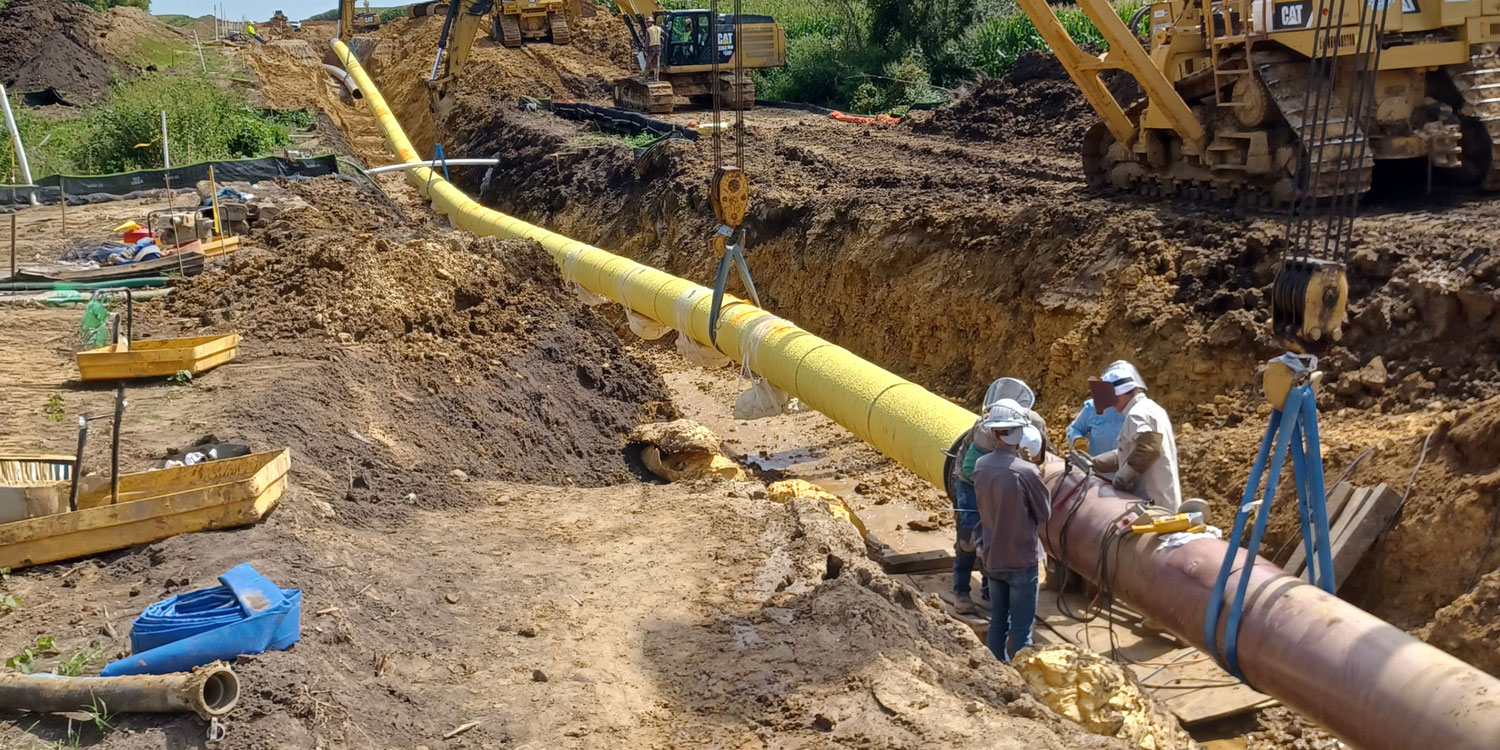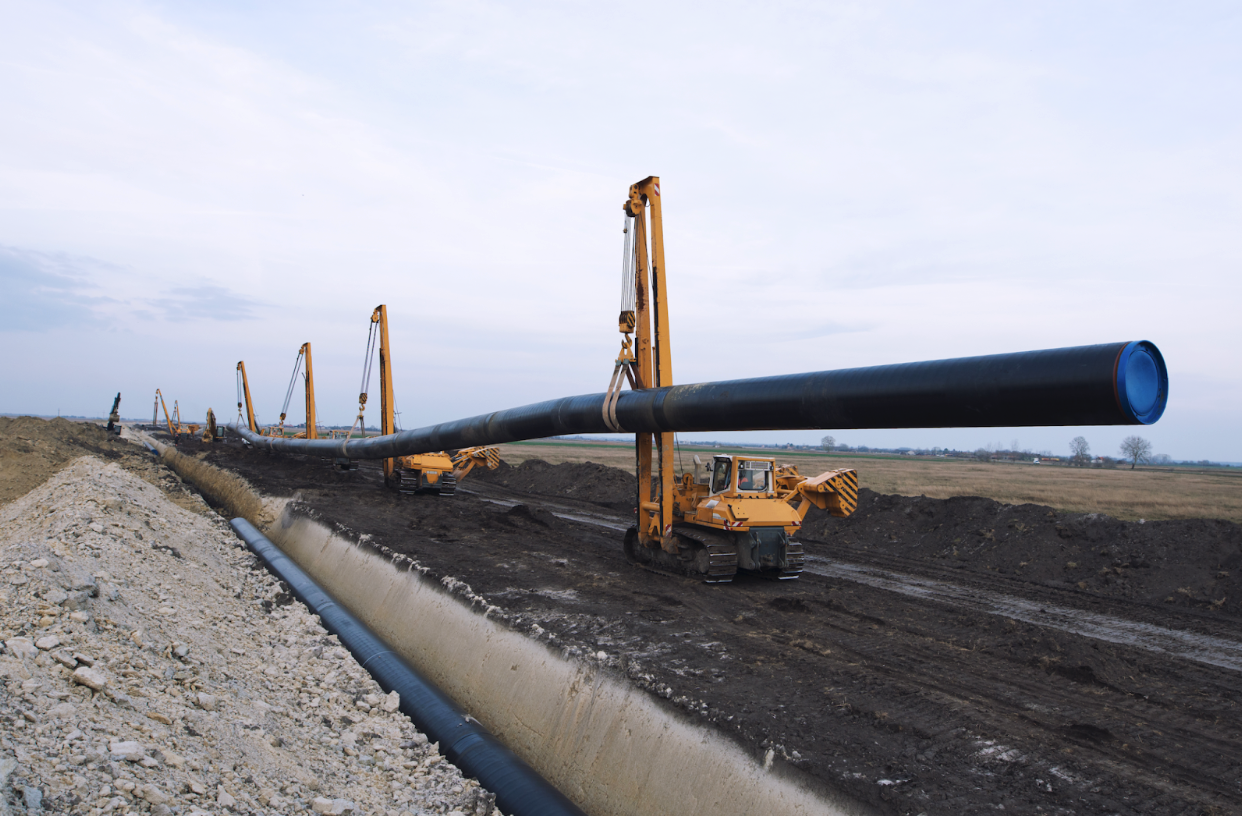Pipeline services Midland Texas: Common Questions Answered
Recognizing the Trick Attributes of Pipeline Services and Their Influence on Effectiveness
Pipeline solutions play a crucial function in various markets, influencing operational effectiveness markedly. Secret functions, such as sophisticated tracking innovations and upkeep techniques, are important for lessening downtime. Furthermore, regulative conformity guarantees safety and security and environmental defense. The interplay between design, facilities, and financial aspects can make complex these procedures. Understanding how these aspects influence overall efficiency raises essential inquiries concerning best practices and future growths in the field.
The Function of Modern Technology in Pipeline Monitoring
As innovations in technology remain to progress, the importance of efficient pipe surveillance has come to be increasingly apparent. Modern pipeline systems count on innovative surveillance devices that boost functional effectiveness and safety and security. Technologies such as real-time information analytics, sensors, and drones provide operators with immediate insights right into pipe conditions, enabling them to spot leaks, corrosion, and other potential issues prior to they intensify into significant troubles.
Furthermore, the integration of Net of Points (IoT) devices has actually changed standard surveillance techniques, permitting continuous surveillance and automated reporting. This aggressive method not only decreases threats yet additionally enhances maintenance timetables and source allowance. Additionally, advanced software systems promote information visualization and interpretation, empowering decision-makers to react quickly to anomalies. Jointly, these technical technologies not just improve pipe integrity but additionally foster environmental stewardship by minimizing the prospective influence of leaks and spills.
Maintenance Approaches for Enhanced Effectiveness
Reliable maintenance methods are important for maximizing pipeline performance. Implementing predictive upkeep strategies, adhering to routine examination procedures, and establishing durable emergency action strategies can greatly improve functional integrity. These approaches not only lessen downtime yet additionally add to the overall security and stability of pipe systems.
Anticipating Upkeep Techniques
Predictive maintenance methods are progressively identified for their capacity to improve operational performance in pipe services. By leveraging information analytics and monitoring innovations, these methods allow drivers to expect devices failings before they happen. This positive method reduces unexpected downtime, decreases maintenance expenses, and extends the lifespan of vital possessions. Sensing units and IoT gadgets play a critical function in collecting real-time data, allowing for the analysis of tools health and wellness and efficiency patterns. Artificial intelligence formulas assess this data to determine patterns and predict potential concerns. Subsequently, pipe operators can schedule upkeep activities during non-peak times, maximizing resource allotment and guaranteeing continuous procedure. Inevitably, the fostering of predictive maintenance cultivates a much more trusted and reliable pipe facilities.

Routine Inspection Protocols
Regular assessment methods function as a foundation of upkeep approaches targeted at boosting performance in pipeline procedures - Midland oilfield pipeline services. These protocols include systematic assessments of pipeline stability, focusing on detecting potential issues prior to they rise. Routine assessments commonly consist of visual assessments, leakage detection technologies, and pressure surveillance to assure peak efficiency. By adhering to established timetables, operators can identify deterioration, product wear, or obstruction, therefore decreasing downtime and repair service costs. Additionally, information gathered throughout assessments can notify predictive upkeep efforts, permitting for a positive method to pipeline monitoring. Inevitably, regular assessments not only prolong the life-span of pipe framework yet additionally add to much safer and extra reliable transport of sources, enhancing total functional efficiency
Emergency Situation Feedback Preparation
Emergency response planning is important for preserving performance in pipe operations, ensuring that operators are prepared to address unexpected incidents quickly and effectively. A well-structured emergency situation reaction strategy consists of clear protocols, assigned duties, and communication methods to mitigate dangers related to pipeline failures. Routine drills and training improve group preparedness and familiarize workers with emergency situation treatments. Furthermore, having conveniently available resources, such as spill control tools and emergency get in touch with checklists, can significantly reduce reaction times. By incorporating real-time surveillance innovations, operators can swiftly identify and respond to issues, decreasing environmental influence and operational downtime. Inevitably, an extensive emergency situation action plan not just safeguards possessions and personnel yet additionally enhances the overall efficiency of pipe services.
Governing Conformity and Safety And Security Criteria
Regulative conformity and security standards play a vital function in the pipe services market. Midland oilfield pipeline services. Complying with sector guidelines assures that firms implement effective safety and security protocols and risk administration methods. This dedication not only safeguards personnel and the setting however additionally boosts general operational effectiveness
Compliance With Market Laws
Compliance with market regulations is necessary for making certain the safety and security and effectiveness of pipeline operations. Governing frameworks, such as those established by the Epa (EPA) and the Pipeline and Hazardous Materials Security Management (PHMSA), set rigid standards that drivers need to stick to. These guidelines cover various aspects, including pipe layout, construction, upkeep, and monitoring, guaranteeing that systems run safely and successfully. Non-compliance can cause serious penalties, operational hold-ups, and ecological risks. By sticking to these guidelines, pipe business not only safeguard public safety and security and the setting however likewise boost their operational efficiency. Ultimately, regulative compliance navigate here cultivates trust fund amongst stakeholders, guaranteeing that pipeline services can run perfectly in an affordable landscape while satisfying lawful responsibilities.

Security Method Implementation
Reliable safety and security protocol implementation is a crucial element of pipe operations, carefully linked to regulatory conformity and safety and security criteria. Sticking to these procedures not just ensures the defense of workers however additionally safeguards the setting and framework. A robust safety structure consists of routine training, comprehensive examinations, and the use of suitable security devices. Organizations must continue to be attentive in upgrading their methods to mirror adjustments in guidelines and technical advancements. Conformity with recognized security requirements decreases the threat of mishaps and enhances operational effectiveness. In addition, a society of safety promotes staff member interaction and accountability, adding to overall business success. Eventually, effective safety method application is vital in keeping the honesty of pipeline services and achieving long-term sustainability in procedures.
Threat Management Strategies
Executing durable threat monitoring strategies is vital for guaranteeing that pipeline operations follow governing requirements and security criteria. Organizations must recognize prospective hazards and assess dangers connected with pipeline tasks. This includes carrying out detailed assessments, using sophisticated surveillance innovations, and maintaining compliance with sector guidelines. Routine training for personnel on safety and security protocols boosts situational my review here recognition and prepares groups to react properly to emergencies. Furthermore, establishing contingency plans and performing drills can significantly minimize threats. Collaborating with governing bodies ensures placement with progressing safety requirements. By prioritizing danger administration, pipe solutions can boost operational efficiency while protecting both the environment and public safety and security. Ultimately, a proactive method to take the chance of management cultivates a culture of safety within the industry.
Pipeline Design and Facilities Considerations
Exactly how can the style and infrastructure of pipelines influence general operational performance? The arrangement of pipelines plays a critical duty in establishing their efficiency. Reliable style minimizes friction losses, thus lowering energy intake during liquid transport. Aspects such as diameter, product selection, and design straight impact circulation rates and maintenance needs.
Additionally, critical positioning of shutoffs and checking systems enhances operational control and safety and security. Pipeline services Midland Texas. Framework considerations, including accessibility for repair and maintenance, substantially influence downtime and general performance
Incorporating sophisticated modern technology for real-time tracking facilitates punctual detection of leaks or ineffectiveness, making certain speedy actions to issues. The overall architectural stability, influenced by product longevity and environmental factors, likewise forms lasting operational success. Consequently, thoughtful design and durable facilities are crucial for optimizing pipe efficiency, inevitably adding to the integrity and productivity of pipeline services.
Environmental Effect and Sustainability Practices
While the need for pipeline solutions continues to grow, understanding the environmental influence and adopting sustainability techniques has actually ended up being progressively vital. The building and operation of pipes can notably affect environments, wild animals habitats, and water resources. To check it out minimize these impacts, companies are implementing innovative technologies and techniques intended at lowering emissions, stopping spills, and minimizing land disturbance.
Sustainability efforts often consist of utilizing eco-friendly materials, enhancing power efficiency, and using renewable resource resources to power procedures. In addition, business are progressively carrying out complete environmental evaluations before project initiation, guaranteeing compliance with laws and stakeholder interaction.

Price Monitoring and Economic Elements in Pipeline Solutions
As the pipe market expands, effective price management and recognizing financial aspects become important for keeping competitiveness. Business encounter numerous economic pressures, consisting of fluctuating product expenses, labor expenditures, and regulatory compliance charges. To browse these obstacles, pipeline company should embrace critical monetary preparation and budgeting practices.
Buying innovation can enhance operational efficiency, ultimately decreasing costs in time. In addition, reliable job management guarantees that sources are designated effectively, decreasing hold-ups and unforeseen costs.

Market problems, such as demand for energy and geopolitical aspects, also affect economic stability. Companies should stay nimble, changing their approaches in reaction to these external variables.
Regularly Asked Questions
What Are the Different Types of Pipeline Provider Available?
Various kinds of pipe solutions include transportation, storage, maintenance, examination, and repair work. Each service plays a vital duty in making certain the smooth activity of products, improving safety, and lessening operational interruptions across different sectors.
Just How Frequently Should Pipeline Inspections Be Carried Out?
Pipeline assessments need to be conducted frequently, typically each to three years, relying on the type and problem of the pipe. Much more regular examinations might be needed for older or high-risk pipes to guarantee safety and security and stability.
What Are the Key Causes of Pipeline Failures?
The major reasons for pipe failures consist of rust, damaged construction, material issues, outside damages, leaks, and functional errors. Each aspect adds significantly to possible risks, highlighting the relevance of regular maintenance and surveillance for safety.
Just How Can Companies Enhance Pipeline Solution Reliability?
Companies can enhance pipe solution reliability by carrying out regular maintenance routines, making use of advanced tracking innovations, performing complete inspections, purchasing worker training, and taking on proactive risk administration methods to prepare for and mitigate prospective failings.
What Duty Do Operators Play in Pipeline Providers?
Operators play a vital duty in pipe services by making sure secure transport, maintaining devices, monitoring system integrity, collaborating upkeep, and reacting to emergencies. Their know-how directly influences operational effectiveness and minimizes interruptions in solution distribution.